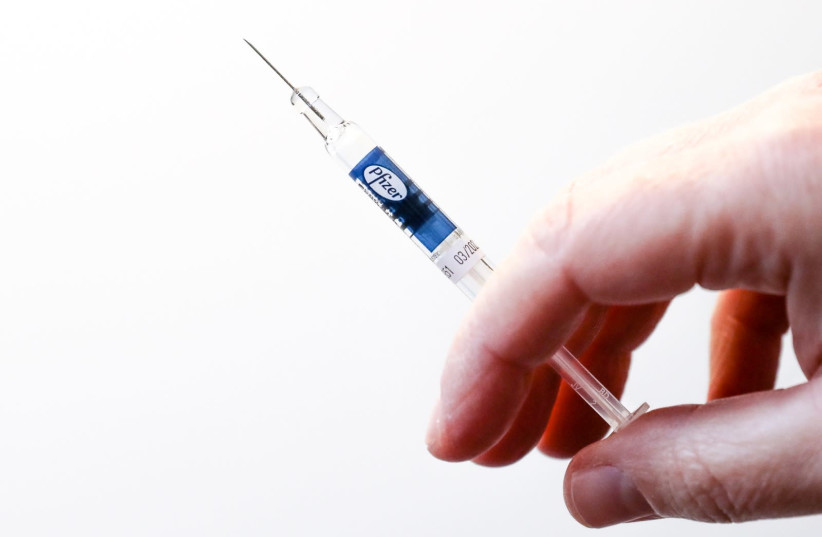December 31 marks one year since the World Health Organization (WHO) gave emergency validation for the Pfizer-BioNTech COVID-19 vaccine in what was one of the first steps in providing a vaccine to help combat the ongoing coronavirus pandemic that had ravaged the world for a year at that point.
Though the WHO only gave emergency use approval to the Pfizer COVID-19 vaccine on December 31, others had done so earlier.
Earlier that same year, Israel had already pushed to receive the vaccine from Pfizer, ordering millions of doses to be sent to the country. This subsequently led to a widely successful vaccination campaign that saw Israel rapidly begin inoculating its population against the virus, one of the first in the world to do so at such a rapid pace.
To this day, the Pfizer vaccine remains the primary COVID-19 vaccine used in the Jewish state.
Also ahead of the WHO was the United Kingdom, which, earlier that December, gave emergency approval for using the Pfizer vaccine.

But the WHO's emergency use approval was important for another reason: Distribution.
A seal of approval from the WHO, even if only an emergency validation, opened the door for other countries around the world to do the same with more confidence, and it allowed other international bodies like UNICEF and the Pan-American Health Organization to help obtain and distribute vaccines in needy countries.
Pfizer was the first company to achieve such success with its vaccine and it remains one of the most highly regarded in the world. Other vaccines, such as those made by Moderna and AstraZeneca, soon followed but the Pfizer vaccine is still seen as dominant in large swathes of the Western world, including Israel.
In the year since, it has received approval from regulatory bodies worldwide, including for use in other age demographics such as children.
The company's vaccine is also administered as booster shots in order to keep up immunity against the virus, with Israel having led the world in getting a third shot and having recently approved the fourth shot for people with heart, kidney and liver transplants, rheumatological diseases and sclerosis, among others.
A trial is currently underway at Sheba Medical Center to test the impact of the fourth vaccine.
Maayan Jaffe-Hoffman and Eliav Breuer contributed to this report.
